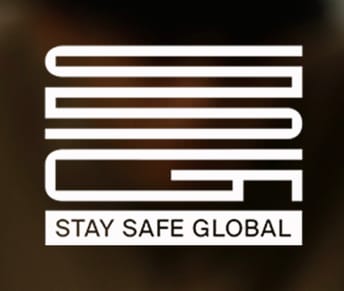The New Threats to Employees: Toxic Masculinity, Incel Ideology, and Geo-Location Stalking

In today’s workplace, toxic masculinity and incel ideology are no longer fringe issues confined to dark corners of the internet. They are seeping into everyday interactions and posing significant risks to employee safety and well-being, both within the traditional office and in the extended workplace environment, which encompasses travel to and from work functions, conferences, and other professional engagements. Coupled with the pervasive threat of geo-location stalking, these factors are creating an environment where employees, especially women and minorities, feel increasingly vulnerable. This opinion piece aims to shed light on these pressing issues and offer actionable steps towards building safer, more inclusive workplaces.
The Pervasive Influence of Toxic Masculinity
Toxic masculinity refers to cultural norms that glorify male dominance, aggression, and suppression of emotions, and it is wreaking havoc in numerous industries. According to the U.S. Equal Employment Opportunity Commission (EEOC), there has been a 50% increase in sexual harassment complaints over recent years, with a considerable number coming from male employees. This indicates that toxic masculinity impacts everyone, regardless of gender.
A study by the American Psychological Association (APA) revealed that 42% of men in the U.S. experience workplace discrimination based on their gender, reflecting the prevalence of toxic masculinity norms. Such environments create power struggles, microaggressions, and a ruthless "dog-eat-dog" work style that undermines both productivity and employee morale. The World Health Organization (WHO) also reports that negative gender norms contribute to high rates of mental health issues among men, highlighting the urgent need for cultural change.
The Rise of Incel Ideology
Incel ideology, short for "involuntary celibates," propagates misogyny and violent rhetoric against women. Although it was once regarded as an isolated issue, its effects are now being felt in workplaces. This ideology fosters a hostile environment, making women feel unsafe and undervalued.
A report from the UK Treasury Committee underscores the prevalence of sexual harassment in the financial services sector, ranging from microaggressions to criminal acts such as assault and rape. The fear of retribution often prevents victims from reporting these incidents, further entrenching a culture of silence and complicity.
The Threat of Geo-Location Stalking
With the proliferation of remote working and digital tools, geo-location stalking has emerged as a new threat. Employees are increasingly reporting instances of their physical location being tracked without consent, leading to severe breaches of privacy and safety. According to hcamag.com, 38% of employees say workplace harassment still happens remotely, emphasising the need for robust digital security measures.
A Call to Action
Addressing these issues requires immediate and concerted efforts. Companies must implement comprehensive policies and training programs to combat toxic masculinity, incel ideology, and geo-location stalking. Here are some actionable steps:
- Strengthen Legislation and Policies: The new Worker Protection Act, an amendment to the UK Equality Act 2010, places a duty on companies to prevent sexual harassment. Employers must take reasonable steps to comply and avoid severe consequences.
- Cultural Change: Organisations need to adopt zero-tolerance policies towards harassment and provide training to address unconscious bias. This includes promoting male allyship and supporting initiatives like the Women in Finance Charter, which aims to improve gender diversity in the financial sector.
- Support Systems: Establishing effective internal whistleblowing procedures and banning the misuse of non-disclosure agreements (NDAs) in harassment cases are essential. Employees must feel confident that when they report misconduct, their concerns will be taken seriously and handled appropriately.
- Holistic Training: Stay Safe Global offers holistic safety training and conflict management courses designed to address cultural norms and mitigate emerging workplace threats. Our survivor-informed methodologies ensure that the training is grounded in real-world experiences and best practices.
- Employee Well-Being: Providing support for mental health issues caused by toxic masculinity is crucial. Men should feel comfortable seeking help without fear of being seen as weak or emasculated. This can be achieved through wellness programs and open dialogues about mental health.
Conclusion
The fight against toxic masculinity, incel ideology, and geo-location stalking is not a campaign against men but a campaign for safer, more inclusive workplaces where everyone can thrive. By taking decisive action, we can create environments where employees feel valued, respected, and protected.
For more information on how to build a safer workplace, book a call with Stay Safe Global today. Together, we can enact meaningful change and foster a culture of dignity and respect.
---
Sources:
- Pew Research Center
- U.S. Equal Employment Opportunity Commission (EEOC)
- American Psychological Association (APA)
- World Health Organization (WHO)
- HCAMag.com
- UK Treasury Committee
- Stay Safe Global testimonials from Google, UK Says No More, and DXC Technology





